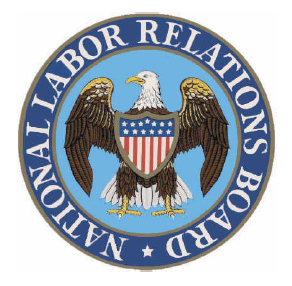Employers, Social Media Policies and the NLRB – a Trap for the UnwaryOctober 2, 2012
 Technology has changed the world, including how, where and when, employees perform work for their employers. Today, with one stroke of the “send” key, an employee can reach a virtually unlimited audience – creating an avenue of expression that can create both opportunity and risk for the employer. Effecting a necessary balance can prove challenging for employers; but the consequences of not achieving that balance can be both significant and adverse.
Technology has changed the world, including how, where and when, employees perform work for their employers. Today, with one stroke of the “send” key, an employee can reach a virtually unlimited audience – creating an avenue of expression that can create both opportunity and risk for the employer. Effecting a necessary balance can prove challenging for employers; but the consequences of not achieving that balance can be both significant and adverse.
Employers struggle mightily to create and implement social media policies that set clear boundaries respecting what employees may, and may not do, when accessing social media by way of the employers’ equipment and/or the employers’ workplace, or which could reasonably be attributed to the employer.
But, without such a social media policy, traditional legal principles which make employers potentially liable (under the legal concept that the principal is liable for the acts of its agents) for the acts and omissions of their employees, acting within the scopes of their employment, could subject employers to liability for dissemination of information or statements made by employees through social media. Potential liability for the unauthorized disclosure of confidential and/or proprietary information (whether the employers’, the customers’ or the clients’), disparagement and/or defamation, among other potential liabilities, loom as significant risks to unwary employers.
On the other hand, the National Labor Relations Board (“NRRB”) has taken an increasingly critical look at employers’ social media policies to ascertain whether they “chill” or “could reasonably be interpreted by employees to chill” the employees’ Section 7 rights under the National Labor Relations Act (“NLRA”). Section 7 rights include the employees’ rights to engage in “concerted activity” that is for the “mutual aid and protection” of the employees.
As a result of the NLRB’s analyses, few social media policies have withstood scrutiny by the NLRB, which has found virtually all such policies to be “over-board”. The recent case of Costco Wholesale Corp., 358 NLRB No 106, decided, September 7, 2011 is illustrative of the scrutiny given such policies by the NLRB.
In that case, the NLRB invalidated Costcos’ policy that prohibited employees from making statements that “damage the Company, defame any individual or damage any person’s reputation”, concluding that the policy could reasonably be interpreted to “chill” an employee’s exercise of their rights to engage in “protected concerted activity” because the language “clearly encompasses concerted communications protecting the Respondent’s [Costco’s] treatment of its employees.” Additionally, Costco’s’ policy failed to expressly provide protection for the employees’ “permissible” communications under the NLRA.
Other social media policies that have been invalidated by the NLRB include those that contain blanket prohibitions on sharing any information that is “confidential”; those that prohibit “controversial topics”, and those that limit discussions that are “offensive, demeaning, abusive or inappropriate”.
The legal landscape respecting social media policies is rife with pitfalls for the unwary employer and that landscape changes as quickly as the technology itself. The best protection for employers is not to bury their heads in the sand until they are compelled to deal with a potential liability, or a social media policy found to be invalid pursuant to NLRB criteria. The best protection is to have an attorney draft and regularly update, as the law changes, a social media policy that protects the employer on all fronts. The business attorneys at DZMM regularly assist employers to draft and implement social media policies that provide protections to the employers, but comply with NLRB requirements. Call us for guidance.








